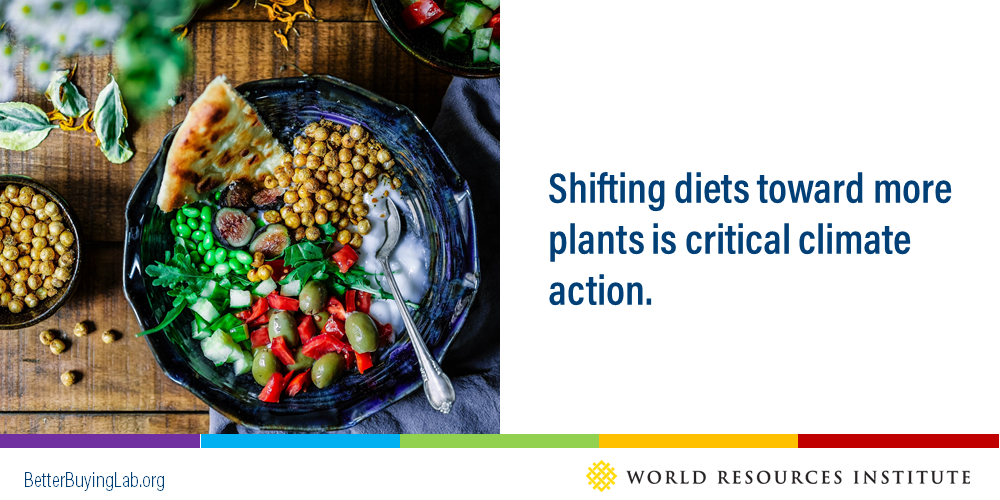
15 Jan Plant-rich diets are for life, not just Veganuary
When I started my career as a food marketer in Unilever, I thought I would have some fun, launch a few products and make some award-winning ads (probably in that order). Little did I think that I would be sitting here today writing about our contribution as marketers to saving the world from the catastrophe that is climate change. Our recent work with the World Resources Institute’s Better Buying Lab makes me optimistic that, as a profession, we really can make a practical difference – but the answer is NOT Veganuary!
Right now, it feels like every food brand is jumping on the Veganuary band wagon. Whilst I am sure that many will see a short-term sales spike, it is a bit like the effect of a price promotion – rarely does it result in sustained changes in consumer behaviour. The real challenge for food industry marketers is to help drive long term consumer behaviour shifts towards a more plant-rich diet.
Why is this so important? Per gram of protein, beef production requires 20 times more land and emits 20 times more greenhouse gas (GHG) emissions than producing plant-based proteins like beans, peas, and lentils. As the world population grows, the impact will get worse as demand for meat is predicted to increase by 88% between 2010 and 2050. Shifting away from a diet rich in meat to one that contains a far higher proportion of plant-based foods is considered by experts to be one of the most important food related solutions to mitigate climate change and avoid further environmental degradation. This does not mean that all consumers need to become 100% vegan, but it does require a different balance and a more ‘flexitarian’ approach. I believe that as marketers we have a responsibility to use our knowledge and skills to help drive this critical shift.
We all know that the theory is all very well but changing consumer behaviour is hard and direct attempts to ‘educate’ consumers rarely end well. At Triniti, we work with clients to apply the principles of behavioural science to nudge consumer change across all types of business challenges.
I am proud to have recently partnered with the World Resources Institute’s Better Buying Lab to co-author some new work that provides practical help to nudge consumers towards plant-rich food choices. Drawing on examples of real world initiatives, as well as academic studies, the output is a ‘Playbook’ of 23 strategies food service companies are successfully using. These strategies include the use of positive language, where a trial in Sainsbury’s café saw an increase of 76% in the sales of a dish, simply by replacing the word ‘meatfree’ with more evocative ‘foodie’ language. Another example shows how availability can make all the difference. When the University of Cambridge increased the ratio of plant-rich dishes from 1:4 to 2:4, sales went up 70%. More details of the Playbook can be found here. This consumer shift towards a more plant rich diet is still in its infancy and the Playbook definitely does not have all the answers. However, hopefully it is a start point for us as food marketers to work together to apply creativity and innovative thinking and play our part in the biggest challenge our planet faces.
Karen Davies, Managing Partner, Triniti Marketing


